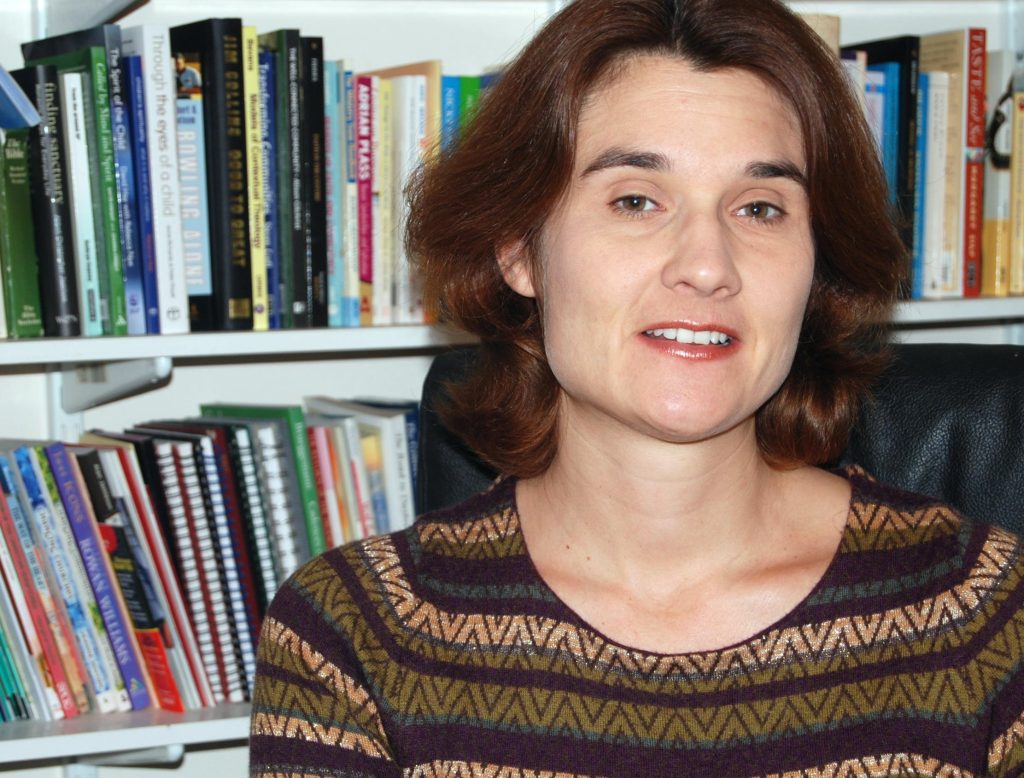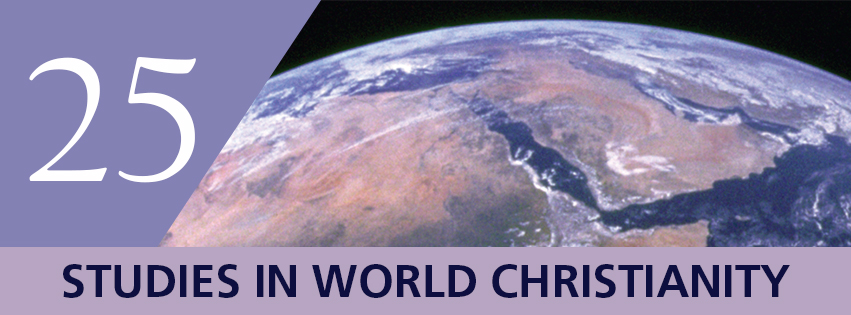
by Emma Wild-Wood
With the publication of Volume 25, the journal Studies in World Christianity completes twenty-five years of existence. Launched at the beginning of 1995 to be an ‘international forum for a dialogue of equals’ on the study of ‘theology and the science of religion,’ this journal has pioneered and defined the inter-disciplinary sub-field of World Christianity. Today World Christianity has established itself as an important discourse that examines Christianity as a world religion, with scholars from across globe.
Free articles
To mark the anniversary of the journal, twenty-five articles from Studies in World Christianity are freely available here. Together the articles demonstrate the breadth of the field of World Christianity and the depth of inter-disciplinary study into rich variety of Christianity around the globe. The articles include the one by Walls that appeared in the first edition, and others by leading scholars in the field, Musa Dube, Brian Stanley (the third editor of the journal), R.S. Sugitharajah and others. Mission history, Asian theology, studies in gender, migration and bible translation are all included here. Studies in World Christianity has always aimed to encourage articles on under-studied movements and writing from scholars from the Global South. However, its focus is not simply on the Global South. The journal has articles on international movements and networks, like that of Ciprian Burlacioiu, ‘Russian Orthodox Diaspora as a Global Religion after 1918’ that is among the free articles.
From 1995
A glance at the first issue gives an indication of the way in which the journal developed the founding vision over quarter of a century. Professor James Mackey, the first editor, recognised the need to discuss the ‘place- and shape-changing nature of Christian theology’ as way of challenging Western dominated thought in which he himself had been formed, but which was questioned by the research of his co-editors, Marcella Althaus-Reid, Andrew Ross and Michael Northcott. Four of the six articles in the first edition gave historical and theological rationales for a careful study of a global context, and the encounter with religious traditions other that Christianity that have become hallmarks of the journal. These articles are ‘Christianity in the Non-Western World: a study in the Serial Nature of Christian Expansion’ by Andrew Walls, ‘The Significance of Modern African Christianity – a Manifesto’ by Kwame Bediako, ‘Theology and Context in East Asia – China, Japan, Korea’ by Edmond Tang, and ‘Original Sin in the East-West Dialogue – a Chinese View’ by Zhou Xinping. The early issues of the journal, however, had a wider remit. One that is visible in the other two articles: John Polkinghorne wrote on ‘The New Natural Theology’ and J. Ian H McDonald on ‘Interpreting the New Testament in the Light of Jewish-Christian Dialogue Today.’ Articles on science and religion, biblical studies and inter-religious dialogue would now be found in other journals. Studies in World Christianity began to develop a particular interest in the social and cultural expressions of Christianity in the non-western world that discussed their distinctive history, including their interaction with western Christianity. There was a gap in the literature on the variety of Christianity as a world religion and this became the particular focus of the journal. This interest was reflected in the work of the Centre for the Studies of Non-Western Christianity (now the Centre for the Study of World Christianity) at the University of Edinburgh, which supported the journal. For some years, the journal’s interdisciplinary scope was often limited to history, anthropology and sociology. There was a concern to not to rival journals of missiology, ecumenics or inter-religious dialogue. However, more recently there has been a return to an engagement with the kind of theology apparent in the first issue, as well as with religious studies methods.
The future of Studies in World Christianity
There are, however, movements that remain understudied in World Christianity. The field has been criticised for its Protestant and Pentecostal emphasis, its focus on Africa and Asia, and its focus on the modern of contemporary era. In the future, we hope to publish in Studies in World Christianity more research on Catholic and Orthodox Christianity, and to broaden the regional horizons with articles on Oceania and Latin America and on the connections and comparisons of Christian movements worldwide. As the World Christianity discourse matures, the editors would welcome theoretical papers that problematize the conceptualisation of world Christianity, examine the approaches that are used in its study and question familiar periodisation.
Happy reading!
Twenty-five articles cannot hope to be truly representative of the study of Christianity worldwide. We hope, however, they will encourage you to read further, and perhaps submit your own work for publication in the journal. Happy reading!
About Emma Wild-Wood
Emma Wild-Wood is co-editor with Alex Chow of Studies in World Christianity. She co-directs the Centre for the Study of World Christianity, in the School of Divinity and is Senior Lecturer in African Christianity and African Indigenous Religions. Her research examines religious change in the Great Lakes area of Africa.






